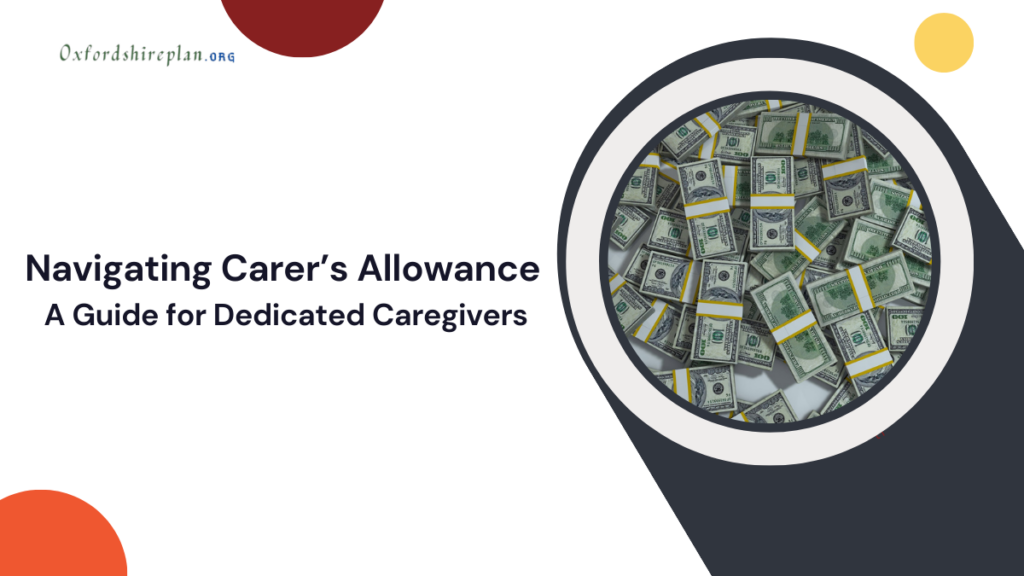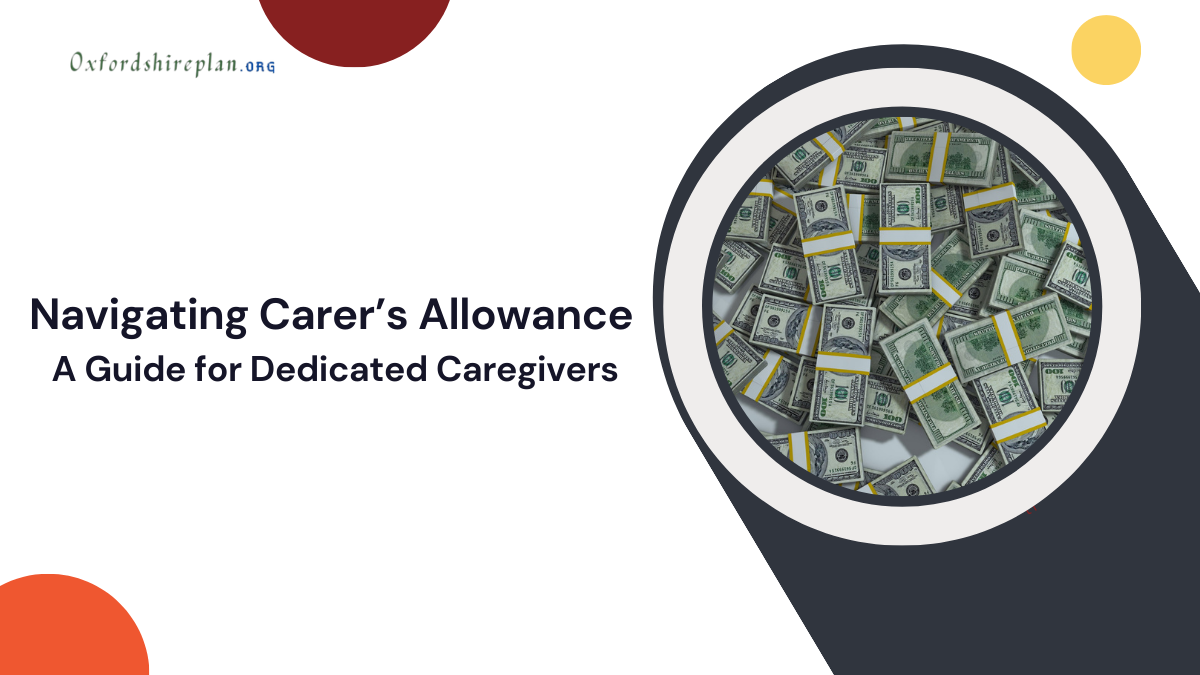Caring for a loved one with a disability is an act of love and commitment that often comes with its own challenges. To support those who provide this vital care, the UK government offers Carer’s Allowance—a financial benefit aimed at easing some of the burdens faced by caregivers. Let’s delve into what Carer’s Allowance is, how it works, and what you need to know to determine your eligibility.

Contents
- What is Carer’s Allowance?
- Am I Eligible for Carer’s Allowance?
- What if I Live Abroad?
- Alternatives if You’re Not Eligible
- How Much Financial Support Will I Receive?
- Additional Benefits Available to Carers
- How to Apply for Carer’s Allowance
- Backdating Your Claim
- Reporting Changes in Your Circumstances
- Understanding Overpayments and Penalties
- Payment Process for Carer’s Allowance
- Challenges and Complaints
What is Carer’s Allowance?
Carer’s Allowance is a taxable benefit provided to individuals who regularly care for someone with a disability. This allowance recognizes the significant time and effort that caregivers dedicate and aims to provide them with some financial relief.
Am I Eligible for Carer’s Allowance?
To qualify for Carer’s Allowance, you typically need to meet the following criteria:
- Age Requirement: You must be 16 years or older.
- Education Status: You should not be enrolled in full-time education.
- Care Commitment: You must spend a minimum of 35 hours each week caring for a disabled individual.
- Income Limit: Your earnings should not exceed £151 per week from employment or self-employment (after accounting for taxes, National Insurance, and pension contributions).
Additionally, the person you care for should receive one of these qualifying benefits:
| Qualifying Benefits | Examples |
|---|---|
| Attendance Allowance | Constant Attendance Allowance |
| Disability Living Allowance (DLA) | Middle or highest care component |
| Personal Independence Payment (PIP) | Standard or enhanced daily living component |
| Adult Disability Payment | Standard or enhanced daily living component |
| Armed Forces Independence Payment | |
| Child Disability Payment | Middle or highest care component |
What if I Live Abroad?
While you generally need to reside in Great Britain to claim Carer’s Allowance, there are exceptions. For example, if you’re a member of the Armed Forces or have family members in the military, you might still be eligible. If you relocate to the EU, Norway, Switzerland, Iceland, or Liechtenstein, you may also qualify. Detailed information about claiming benefits while abroad can be found on GOV.UK.
Alternatives if You’re Not Eligible
If you care for someone for at least 20 hours per week but don’t qualify for Carer’s Allowance, consider applying for Carer’s Credits. These credits can help fill gaps in your National Insurance record, which is essential for qualifying for:
- State Pension
- Contributory Employment and Support Allowance (ESA)
- Contribution-based Jobseeker’s Allowance (JSA)
For more information, visit GOV.UK.
How Much Financial Support Will I Receive?
Carer’s Allowance is provided at a standard rate, which you can verify on GOV.UK. Keep in mind that receiving other benefits may affect the amount you receive:
- If you receive benefits such as the State Pension, contributory ESA, or contribution-based JSA, your Carer’s Allowance might be reduced or not paid at all.
- If the other benefits are lower than your Carer’s Allowance, you’ll receive the difference.
Because the regulations can be complex, it’s wise to consult with Citizens Advice to ensure you’re receiving the correct amounts.
Additional Benefits Available to Carers
If you receive means-tested benefits, Carer’s Allowance counts as income when determining your entitlement. However, you may be eligible for additional support, including:
| Additional Support for Carers | Details |
|---|---|
| Carer Element (Universal Credit) | An additional amount if you qualify for Carer’s Allowance. |
| Carer’s Premium/Addition | This can be added to benefits like Pension Credit, Income Support, and others. |
How to Apply for Carer’s Allowance
Claiming Carer’s Allowance is straightforward. You have two options:
- Online Application: Use the Claim Carer’s Allowance service available on GOV.UK.
- Paper Application: Download the claim form, fill it out, and send it via post.
If you require assistance during your application process, reach out to the Carer’s Allowance Unit for help.
Backdating Your Claim
You can have your Carer’s Allowance claim backdated for up to three months if you were eligible during that time. To maximize this benefit, apply as soon as possible after the person you care for is awarded a qualifying benefit.
Reporting Changes in Your Circumstances
It’s crucial to inform the DWP about any changes that could impact your Carer’s Allowance. For example:
- If you stop providing care (e.g., if a child you care for moves out).
- If your income increases.
Delaying the reporting of these changes can lead to overpayments, which you may need to repay later.
Understanding Overpayments and Penalties
If you fail to report a change affecting your Carer’s Allowance, you may face penalties or be required to repay any overpayments. In certain situations, carelessness might lead to a civil penalty if you unintentionally provide incorrect information. It’s important to clarify that if you’re investigated for fraud, different rules apply, and serious consequences can follow.
Payment Process for Carer’s Allowance
Carer’s Allowance is typically deposited directly into a bank, building society, or Post Office account. If you’re unable to open or manage a bank account, the Payment Exception Service can be utilized to ensure you receive your payments. More details about this service can be found on GOV.UK.
Challenges and Complaints
If you’re denied Carer’s Allowance or believe you’re receiving an incorrect amount, you have the right to contest the decision within one month. Additionally, if you’re dissatisfied with the service from your local benefits office or the DWP, you can file a complaint for any issues such as errors, delays, or poor communication.
Click here to learn more.

I am a dedicated lifestyle and fashion enthusiast, always looking for the latest trends and timeless styles. With a flair for creativity and a passion for self-expression, I provide fresh insights and tips on elevating everyday living and personal style.
















